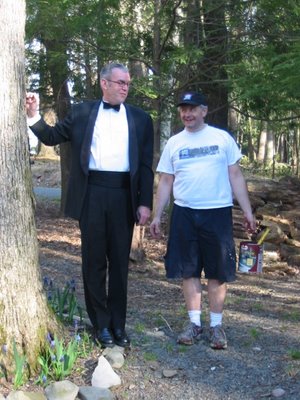
I teach Sunday school. One of my students plays football, acts, sings AND tries to make sense of the world. What a kid!
Then he told me how much he loved poetry.
Jeezus! The kid is living up to standards I couldn't even remember.
Happily Bill Moyers had the great poet W. S. Merwyn on his Journal so that I could partake without any effort.
Having lost my father last November after a year and a half of failing health the episode was really hard. Here's one poem that illustrates why.
W. S. Merwyn
My friend says I was not a good son
you understand
I say yes I understand
he says I did not go
to see my parents very often you know
and I say yes I know
even when I was living in the same city he says
maybe I would go there once
a month or maybe even less
I say oh yes
he says the last time I went to see my father
I say the last time I saw my father
he says the last time I saw my father
he was asking me about my life
how I was making out and he
went into the next room
to get something to give me
oh I say
feeling again the cold
of my father's hand the last time
he says and my father turned
in the doorway and saw me
look at my wristwatch and he
said you know I would like you to stay
and talk with me
oh yes I say
but if you are busy he said
I don't want you to feel that you
have to
just because I'm here
I say nothing
he says my father
said maybe
you have important work you are doing
or maybe you should be seeing
somebody I don't want to keep you
I look out the window
my friend is older than I am
he says and I told my father it was so
and I got up and left him then
you know
though there was nowhere I had to go
and nothing I had to do















